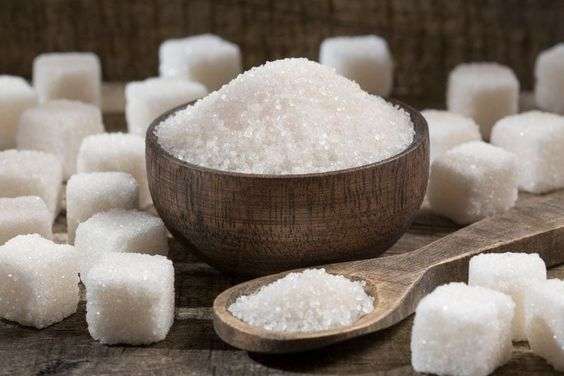Sugar Is More Addictive Than Cocaine: Unraveling Sugar Addiction, Insights from Neuroscientists, and the Complex Nature of Substance Addiction
In the modern world, sugar is a ubiquitous and tempting indulgence. From sweet treats to sugary beverages, it seems like we can’t get enough of this delightful substance. But could our love affair with sugar be more than just a preference? Could it be an addiction? In this extensive exploration, we will delve into the notion that sugar is more addictive than cocaine, uncover the science behind sugar addiction from the perspective of neuroscientists, and examine the intricate nature of substance addiction.
The Sweet Temptation
A Sugar-Laden World
Sugar, in its various forms, has become a staple of our diets. From the fructose in fruits to the sucrose in sweets and the high-fructose corn syrup in many processed foods, sugar is virtually everywhere. Its sweetness is alluring, and many of us find it challenging to resist.
The Pleasure of Sugar
When we consume sugar, our brains release dopamine, a neurotransmitter associated with pleasure and reward. This surge of dopamine contributes to the pleasurable sensation of eating sweets, making us crave more. Over time, this cycle of craving and reward can lead to a dependence on sugar.
Sugar Addiction: A Controversial Concept
Is Sugar Really Addictive?
The idea that sugar can be addictive, akin to substances like cocaine or opioids, is a contentious topic in the field of nutrition and neuroscience. While some experts argue that sugar can indeed lead to addiction-like behaviors, others maintain that addiction should be reserved for substances that induce physical dependence and withdrawal symptoms.
Defining Sugar Addiction
Sugar addiction is often described as a pattern of behavior where an individual exhibits cravings, loss of control, and continued consumption of sugar despite negative consequences. These consequences can include weight gain, diabetes, and dental issues.
Insights from Neuroscientists
The Brain’s Reward System
To understand sugar addiction, we must explore the brain’s reward system. When we consume sugar, the brain’s reward centers are activated, leading to the release of dopamine. Over time, repeated sugar consumption can desensitize the brain’s reward system, leading to a need for more sugar to achieve the same pleasurable effect—similar to what occurs with drugs of abuse.
Neuroplasticity and Sugar
Neuroplasticity refers to the brain’s ability to adapt and change in response to experiences. When we consume sugar regularly, our brain’s reward circuitry can undergo changes, reinforcing the desire for sugar and making it difficult to quit.
Withdrawal Symptoms
Some studies suggest that individuals who regularly consume high amounts of sugar may experience withdrawal symptoms when they attempt to cut back. These symptoms can include irritability, mood swings, and cravings, further supporting the notion of sugar addiction.
Sugar and the Brain: A Complex Relationship
The Role of Evolution
Our evolutionary history plays a significant role in our attraction to sugar. Throughout much of human history, sweet foods were rare and valuable sources of energy. Our ancestors who sought out and consumed sugary foods were more likely to survive and reproduce, passing down their sugar-seeking genes.
The Modern Sugar Dilemma
In today’s world, sugar is abundant and easily accessible. Our innate desire for sweetness, combined with the omnipresence of sugar-laden foods, creates a perfect storm for potential addiction. It’s a challenge for our brains to resist the allure of sugar when it’s everywhere we turn.
Sugar Addiction vs. Substance Addiction
Key Differences
While sugar addiction shares some similarities with substance addictions like cocaine or opioids, there are key differences. Substance addictions often involve physical dependence and severe withdrawal symptoms when the substance is removed. Sugar addiction, on the other hand, is more psychological and behavioral in nature, with fewer physical withdrawal symptoms.
Common Mechanisms
Both sugar addiction and substance addiction involve changes in the brain’s reward system and the development of tolerance, where increasing amounts are needed to achieve the same effect. They also share the element of cravings and loss of control over consumption.
Breaking Free from Sugar Addiction
Recognizing the Problem
The first step in addressing sugar addiction is acknowledging that it exists. If you find yourself constantly craving and consuming sugary foods, and it’s negatively impacting your health and well-being, it may be time to seek help.
Gradual Reduction
Quitting sugar cold turkey can be challenging, leading to cravings and potential relapse. Gradually reducing your sugar intake and replacing sugary foods with healthier alternatives can be a more sustainable approach.
Seeking Support
Support from friends, family, or even professional counselors or dietitians can be instrumental in overcoming sugar addiction. Sharing your struggles and progress with others can provide motivation and accountability.
The Broader Implications
Public Health Concerns
The prevalence of sugar addiction has significant public health implications. The global rise in obesity, diabetes, and related health issues is partly attributed to excessive sugar consumption. Recognizing and addressing sugar addiction is essential in combating these epidemics.
Industry Influence
The food industry plays a significant role in our consumption of sugar. Sugary foods are often marketed aggressively, contributing to their ubiquity. Understanding the impact of industry tactics on our eating habits is crucial in making informed choices.
Conclusion: Navigating the Sweet Temptation
The debate over whether sugar is more addictive than cocaine underscores the complexity of addiction itself. While sugar addiction may not be identical to substance addiction, the evidence suggests that it shares many of the same behavioral and neurological mechanisms.
Awareness of the potential for sugar addiction and its impact on health is essential in making informed choices about our diets. As we navigate a world saturated with sugary temptations, understanding the science behind sugar addiction empowers us to make healthier choices and seek support when needed.
In the end, the sweet temptation of sugar will always be present, but armed with knowledge and determination, we can find a balance that allows us to enjoy the occasional indulgence without falling victim to addiction.
Do Follow Us On Twitter – https://twitter.com/Uniqverses708
We Have a Wide Range of Unique information For You On uniqverses.com
Please like, comment & Share if you want us to keep bringing these amazing and unique information for you.










One thought on “Sugar Is More Addictive Than Cocaine”